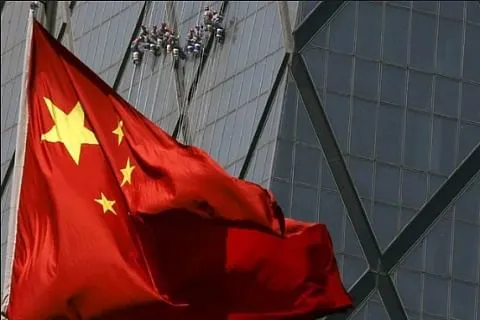The second in-person Quad summit was held in Tokyo on May 24. Prime Minister Narendra Modi joined US President Joe Biden, Japanese Prime Minister Fumio Kishida and the newly elected Australian Prime Minister Anthony Albanese for this important event.
The basic motivation for Quad’s formation lies in China’s desire to dominate the Indo-Pacific region. The Quad countries are also conscious that its ambitions does not stop there.
It aims to be counted at least on par with the US and eventually overtake it to become the world’s pre-eminent country.
Western approaches towards China beginning with the 1970s and still going on in many sectors is a classic illustration of the law of unintended consequences. This is because the West and Japan contributed to China’s astonishing rise through their own policies and actions.
It began with the US opening to China and then through its and other Western companies making enormous investments in China, especially in the manufacturing sector. This helped it to gradually become the world’s major manufacturing hub, if not its factory.
All this became possible once China’s top leadership decided in the late 1970s to re-orient the country’s economic policies and open up to foreign investments.
China did not remain a passive recipient of Western investments by being satisfied with only getting jobs for its vast population. It also focussed on acquiring cutting edge technology, often through unscrupulous means.
Yet the West and Japan were not alarmed at China’s rise till relatively recently even though it was modernising and augmenting its armed forces as well and at great speed.
Perhaps, this was so because China was essentially lying low and not taking active interest on the political issues of the times despite being a permanent veto holding member of the United Nations Security Council.
By now, however, China is the West’s leading and powerful rival pursuing aggressive policies and showing a disdain for international norms which undergird contemporary world order. All this the West would never have intended to happen when it energised its engagement with China.
But it has; and, hence, the need to contain it. India has a congruity of interests with the West with respect to China which has shown a persistent negativity towards this country.
This has also been demonstrated over the past two years too by China’s along the LAC in Ladakh. China has virtually broken the bilateral understandings and agreements of the 1990s for the maintenance of peace and tranquillity along the LAC.
The Tokyo Quad summit was held in the shadow of Russia’s continuing invasion of Ukraine. The US and its European allies have argued that in doing so Russia has aggressively violated international laws and norms.
Hence, all countries that are against China’s actions which undermine global norms should also stand up against Russia. However, international relations is not so much about principles as about interests. Therefore, Quad is not united on Russia.
The opening speeches of the leaders of the four countries amply show these differences. Kishida told his counterparts that the Russian invasion had “fundamentally shaken the rule-of-law-based international order we all cherish”; Biden roundly condemned Putin for inter alia causing human catastrophes; Albanese and Modi did not mention Russia at all.
Interestingly, the Indian and US statements issued after Modi’s meeting with Biden in Tokyo show the large gap between them on Russia too. The Indian statement does not refer to the Russian action while the US’ focuses on Biden’s sharp condemnation of its Ukraine invasion.
Significantly, the US statement mentioned “The leaders committed to continue providing humanitarian assistance, and discussed how to cooperate to manage disruptions caused by the war in Ukraine, in particular the rise in energy and food prices to protect their respective citizens and the world”.
Indian representatives have been focussing on these repercussions of the Ukraine war but clearly India did not want to offend Russia by mentioning that it was discussed between Modi and Biden. This is showing excessive sensitivity to Russia.
The Tokyo Quad joint statement reflects the common concerns of the four countries to keep the Indo-Pacific region open and free. In an indirect reference to China but which can be interpreted to include Russia too, the joint statement notes “We reaffirm our resolve to uphold the international rules-based order where countries are free from all forms of coercion of military, economic and political coercion”.
As China is seeking to take many of the South Pacific Island countries in its embrace the statement indicates a resolve to counter it. On issues of special concern to India such as terrorism and the Myanmar situation the statement indicates that Indian positions have been taken into account.
Looking to the future the Quad states have made commitments on health security of the Indo-Pacific region and to combat climate change. The latter will impact most severely on the island countries of the Indo-Pacific.
But from the viewpoint of Indian interests the indication that Quad will pay special attention to emerging and frontier technologies is of supreme importance. It mentions in particular telecommunications and semi-conductors and resilient supply chains in these areas.
All this finds expression in the document also because of concerns of China’s progress in this area. While these intentions are good the fact is that it will require great effort on the part of Western and Indian businesses to wean themselves away from Chinese manufacturing. That has to be accomplished if China is to be successfully contained.
Disclaimer: The views and opinions expressed in this article are the personal opinions of the author.
The facts, analysis, assumptions and perspective appearing in the article do not reflect the views of GK.







